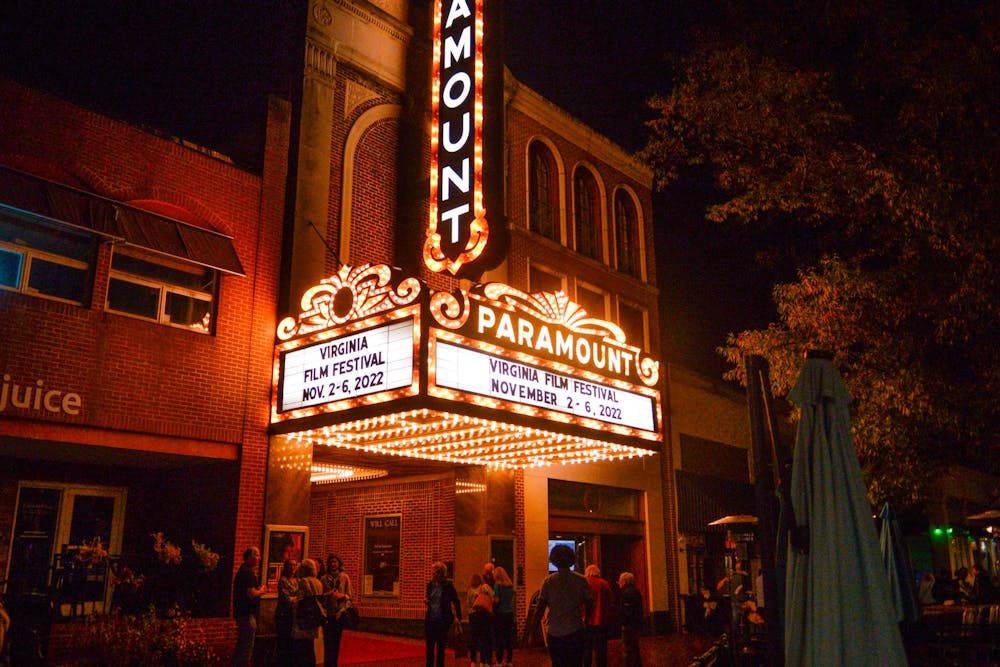The Virginia Film Festival held a screening Saturday for “Women Talking” at The Paramount Theater ahead of its December release. A Q&A with Tony-nominated actor Judith Ivey followed the screening, where she talked about the film, the process of making it and her career.
Written and directed by Sarah Polley, “Women Talking” follows a small group of women in a religious colony cut off from the rest of the world. After the men of the colony sexually assault numerous of the women and girls, the women gather in a barn to discuss what they should do. Their options are to do nothing, stay and fight or leave the colony altogether. Over the course of a couple days, the women argue about what the best decision would be, as they urgently need to make a choice.
The film has an amazing ensemble of actors, including Claire Foy who delivers an impassioned performance as Salome. During two different monologues, Salome makes it clear that she wants to stay and fight in order to protect her children from the evils that lurk in the colony. The pain and desperation in her voice is evident. She is an incredibly sympathetic character, and Foy emotionally portrays Salome’s anguish.
Mariche — played by Jessie Buckley — is a more cynical character and has her share of rousing, memorable scenes as her character tries to justify her opinions. She skillfully represents the determined and strong nature of Mariche through the willful delivery of her lines.
Rooney Mara is incredible as Ona, a calm woman and a dreamer. Her relationship with August, the man taking the minutes of the women’s meeting, played by Ben Wishaw, gives the film so much heart. In a beautiful scene, August and Ona lie down outside under a sky filled with bright stars, and he shows her how to use the stars to navigate. This heartwarming moment and this relationship add an element of humanity and levity to an otherwise heavy film.
Ben Wishaw astonishingly portrays this kind-hearted man deeply in love with Ona, giving a hidden poignancy to August. Performances like his adds to the overall strong acting of the group.
In addition to the acting, the writing makes this film impactful. Polley creates riveting dialogue with the ideological struggles of the women, with forgiveness as one such theme.
Mariche, as well as Scarface Janz, played menacingly by Frances McDormand, believe they should forgive the men for their actions. On the other hand, Salome has no interest in forgiving the men, and she wants to kill everyone who has harmed an innocent woman. Ona believes that forced forgiveness, like the forgiveness that would be given to the men if they stayed, is not true forgiveness. The fully fleshed-out screenplay gives each character, even if one seems more rational than another, both thoughtful dialogue and an understandable reason behind their argument.
Polley riddles interesting debates like the one about forgiveness throughout the screenplay. The dialogue — in this scene and many other scenes of quarrel — allows the women’s characterization and purpose to be contrasted. Thus, each scene captures and demands attention with its compelling writing.
“Women Talking” also features a fantastic score composed by Hildur Guðnadóttir. It is stirring and tense at the right moments but also incredibly moving. For instance, during a significant moment of unity between the women, the music optimistically swells, emphasizing the connection between them.
The effective editing makes the film easier to watch. Despite the story consisting of mostly one discussion between a group of people, the film does not feel tedious. The discussion is intercut with side conversations, shots of the colony outside of the barn and flashbacks that give further context to the colony and characters. At times, the film cuts to the children of the colony running around and playing outside, displaying the innocence that had been taken from so many other girls in the colony.
Such filmic elements were discussed thoroughly during the Q&A following the screening, including Ivey’s thoughts on Polley’s directorial abilities.
Ivey said Polley was able to bring out the best in all of the actors, especially with such a large and powerful ensemble.
“She is an amazing director,” Ivey said. “She, of course, started as an actor. And I think that really adds to her talents as a director. She's terribly sensitive to what the actor has to find.”
Ivey also discussed how filming during the COVID-19 pandemic heightened the actors’ familiarity and intimacy with each other.
“It's one of the most extraordinary experiences I've ever had,” Ivey said. “We were always together all day long. And we found our relationships between the actors in the same way that we would find our relationships as characters.”
As a whole, “Women Talking” tells the story of a community built by men designed to victimize, abuse and undermine women. It is a tragic but important film. At the end of the Q&A, Ivey shared that she has had conversations with audience members at different screenings about their own experiences with escaping abuse.
“You’re made acutely aware of how powerful this medium is and how it can change people's lives, open their minds, their hearts,” Ivey said. “In those smaller, let's say, more intimate situations, women have shared their stories … we sit there in humbled silence as an audience member tells us how important it was for her to see this film.”







